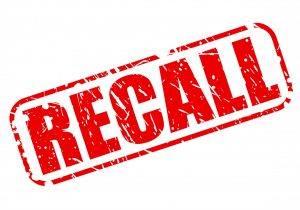Respironics Ventilators, CPAP and BiPAP Machines Recalled
The United States Food and Drug Administration (FDA) has issued a warning for people who use specific Philips Respironics ventilators, BiPAP, and CPAP machines. The FDA has issued a warning because Philips Respironics recalled devices due to possible health risks.

The FDA is working in conjunction with Philips Respironics to evaluate the issue, the scope of the recall, and the most appropriate mitigation strategies, including corrective actions by the company. Medical device reports related to the affected devices over the period of 2009 to 2021 are being analyzed by the FDA for reports that could be related to this issue.
What are BiPAP, CPAP, and ventilator devices?
A bilevel positive airway pressure machine (BiPAP) is used to provide breathing assistance. A BiPAP machine pumps air under pressure into the airway of the lungs. BiPAP machines have a higher pressure when you breathe in and lower pressure when you breathe out.
A continuous positive airway pressure (CPAP) machine keeps your airway open by providing a continuous stream of air through a mask. People with obstructive sleep apnea are prescribed CPAP machines to keep their airways open during sleep.
A continuous ventilator device is intended to mechanically control or assist patient breathing by delivering a predetermined percentage of oxygen in the breathing gas.
What makes these Phillips Respironics products defective?
The defect is in the sound-dampening foam located inside the machine. Polyester-based polyurethane (PE-PUR) foam is used to reduce the vibration and sound of the devices so that they don’t interrupt a patient’s sleep. This foam may break down into particles that could enter the air pathway of these devices. Patients could inhale or swallow the broken-down particles.
The degradation of the foam degradation could be made worse by environments with high humidity and high heat. The use of ozone to clean the device could also play a role in the degradation of the foam.
There is also a risk that the degrading foam may expose users to carcinogenic (i.e., cancer-causing) gases. This can lead to:
- Headache and dizziness
- Irritation of the respiratory tract, nose, eyes, and skin
- Hypersensitivity
- Nausea/vomiting
- Organ damage
- Death
These issues can result in serious injury, cause permanent impairment, and require medical intervention to prevent permanent damage. The FDA has not reported any deaths to date due to the use of these devices.
Which models have been recalled?
The devices that have been recalled were all manufactured between 2009 and April 26, 2021. They are largely used in homes, but nursing homes, rehab clinic, and other medical facilities may also use the devices. See the list of models below.
CPAP and BiPAP machines
| Continuous Ventilator, Minimum Ventilatory Support, Facility Use | E30 (Emergency Use Authorization) |
| Continuous Ventilator, Non-life Supporting | DreamStation ASV
DreamStation ST, AVAPS SystemOne ASV4 C-Series ASV C-Series S/T and AVAPS OmniLab Advanced+ |
| Noncontinuous Ventilator | SystemOne (Q-Series)
DreamStation DreamStation Go Dorma 400 Dorma 500 REMstar SE Auto |
Ventilators
| Continuous Ventilator | Trilogy 100
Trilogy 200 Garbin Plus, Aeris, LifeVent |
| Continuous Ventilator, Minimum Ventilatory Support, Facility Use | A-Series BiPAP Hybrid A30 (not marketed in US) A-Series BiPAP V30 Auto |
| Continuous Ventilator, Non-life Supporting | A-Series BiPAP A40 A-Series BiPAP A30 |
What do I do if I use Phillips Respironics BiPAP, CPAP, or ventilator device?
If you have used any one of the devices listed above, talk to your doctor about an alternative treatment method for your condition. If you have used the BiPAP or CPAP devices, you might be instructed to do the following by your doctor:
- Stop using the device
- Use a similar device not found in the recall
- Use alternative treatments for sleep apnea
You should only continue to use your affected device if your health care provider determines that the benefits outweigh the risks identified in the recall from the FDA.
It is vital that you follow all of the instructions provided by the device manufacturer when it comes to replacing and cleaning a CPAP machine and its accessories.
You should register all of your medical devices with the manufacturer to monitor for possible recall notices. The Philips Respironics website has recall information for all of these products as well as information on how to correct the issues. You can also report problems with brand new devices to the FDA using the agency’s MedWatch Voluntary Reporting Form.
What do I do if I was injured by a BiPAP, CPAP, or ventilator device?
Contact an attorney right away, and keep your device. We can inspect your device to see if the foam is degraded, and we will need this as proof for your product liability claim. Make sure to see your doctor as quickly as possible so that we review your medical records. Finally, take pictures of the device. They could be a critical component in claiming damages for your injuries.
If you or a loved one was injured by a defective product, the New Jersey product liability attorneys at Eichen Crutchlow Zaslow, LLP will ensure that your rights are protected. We hold negligent companies responsible when they put dangerous products on the market that harm our loved ones. Call one of our offices in Edison, Red Bank, or Toms River at 732-777-0100 or complete a contact form to schedule a consultation with a member of our team.

Eichen Crutchlow Zaslow, LLP has purposely remained small in size, because it is important to us that we get to know our clients and their needs. Larger NJ injury firms may churn out case after case, but that’s not how we operate. Partners Barry Eichen, William Crutchlow, and Daryl Zaslow have created a firm with the resources to handle complex litigation, and a team that takes your case personally.
Find out more about Eichen Crutchlow Zaslow, LLP
